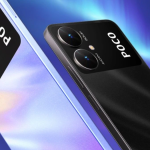Summary
NVIDIA is creating the H20 GPU, a chip tailored for the Chinese market that complies with U.S. export regulations and It meets China’s AI needs while avoiding trade restriction violations.
NVIDIA’s CEO Jensen Huang recently addressed reporters in Taiwan while visiting TSMC’s chip fabrication plants, providing clarity on the U.S. government’s decision to grant export licenses to ship specialized GPUs to China. The move comes amid ongoing trade tensions and restrictions on advanced semiconductor exports to the Chinese market.
Why NVIDIA Developed the H20 GPUs
For years, China has faced challenges in acquiring the most advanced chips to support its rapidly growing AI sector. U.S. restrictions had previously barred the export of high-performance GPUs, including NVIDIA’s flagship H100, over national security concerns.
To meet regulatory requirements while still serving the Chinese market, NVIDIA created the H20 GPU. This chip is designed as a lower-spec alternative that complies with U.S. export laws but still provides enough computing power to help Chinese companies develop AI technologies.
According to Huang, NVIDIA designed the H20 not only to address regulatory barriers but also to satisfy China’s own AI demands, balancing industry needs with geopolitical restrictions.
What Are the H20 GPUs?
The H20 GPUs are NVIDIA processors tailored specifically for China. While not as powerful as the H100, they remain capable of training and deploying advanced AI systems. Importantly, they are not restricted to China and could find applications in other global markets as well.
The Trump administration’s decision to grant export licenses for the H20 marks a significant shift—potentially reopening billions of dollars in business for NVIDIA and AMD in China.
Addressing Backdoor Concerns
Chinese officials reportedly questioned whether the H20 chips contained any hidden “security backdoors.” Huang was direct in his response:
“I made it very clear and put to rest that H20 has no security backdoors.”
Security backdoors in hardware remain a serious concern between Washington and Beijing. The U.S. government has long accused companies like Huawei of embedding them into devices to facilitate surveillance. Huang’s insistence that the H20 contains no such vulnerabilities was aimed at reassuring both Chinese regulators and global customers.
Huang’s Conversation with Trump
Reporters pressed Huang on what led President Trump to approve the export licenses. Huang clarified that he did not give the president policy advice but emphasized the importance of America’s leadership in AI technology.
He told Trump:
- AI will advance globally with or without U.S. participation.
- Restricting U.S. exports could slow development temporarily, but international competitors would eventually catch up.
- Allowing U.S. companies to export technology ensures America maintains its leadership role during this formative era of AI.
This pragmatic stance appears to have contributed to the administration’s decision to greenlight licenses.
Looking Ahead: NVIDIA Rubin Chips
While the H20 and U.S.-China trade issues dominated headlines, Huang highlighted that his primary reason for being in Taiwan was to check progress on NVIDIA’s Rubin chips, currently in development at TSMC.
The Rubin chipset—expected to launch between 2026 and 2027—represents NVIDIA’s next-generation architecture for powering future AI applications. These chips are being designed to surpass the current Hopper-based GPUs in both performance and efficiency, potentially setting a new industry standard.
The Trump administration’s new export licenses are a win for NVIDIA, reopening access to a major market while ensuring compliance with U.S. restrictions. For China, the H20 GPUs offer a much-needed boost to its AI industry, even if they fall short of the top-tier H100 performance.
Jensen Huang’s comments underscore a broader reality: AI development cannot be confined within borders, and nations that restrict technological exports risk losing long-term influence. With Rubin chips on the horizon, NVIDIA is looking to maintain its edge at a global scale while navigating the fine line between innovation and geopolitics.





